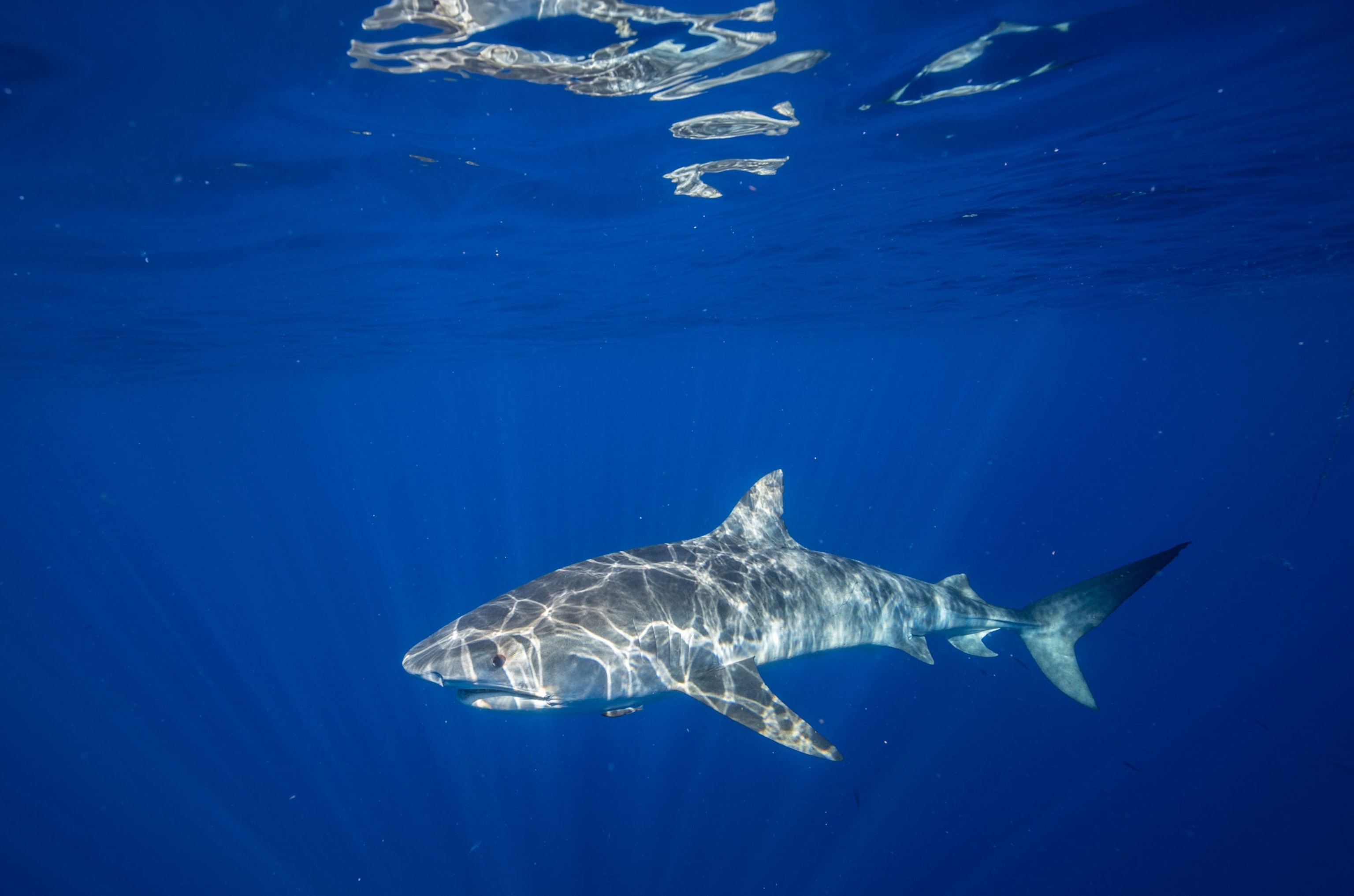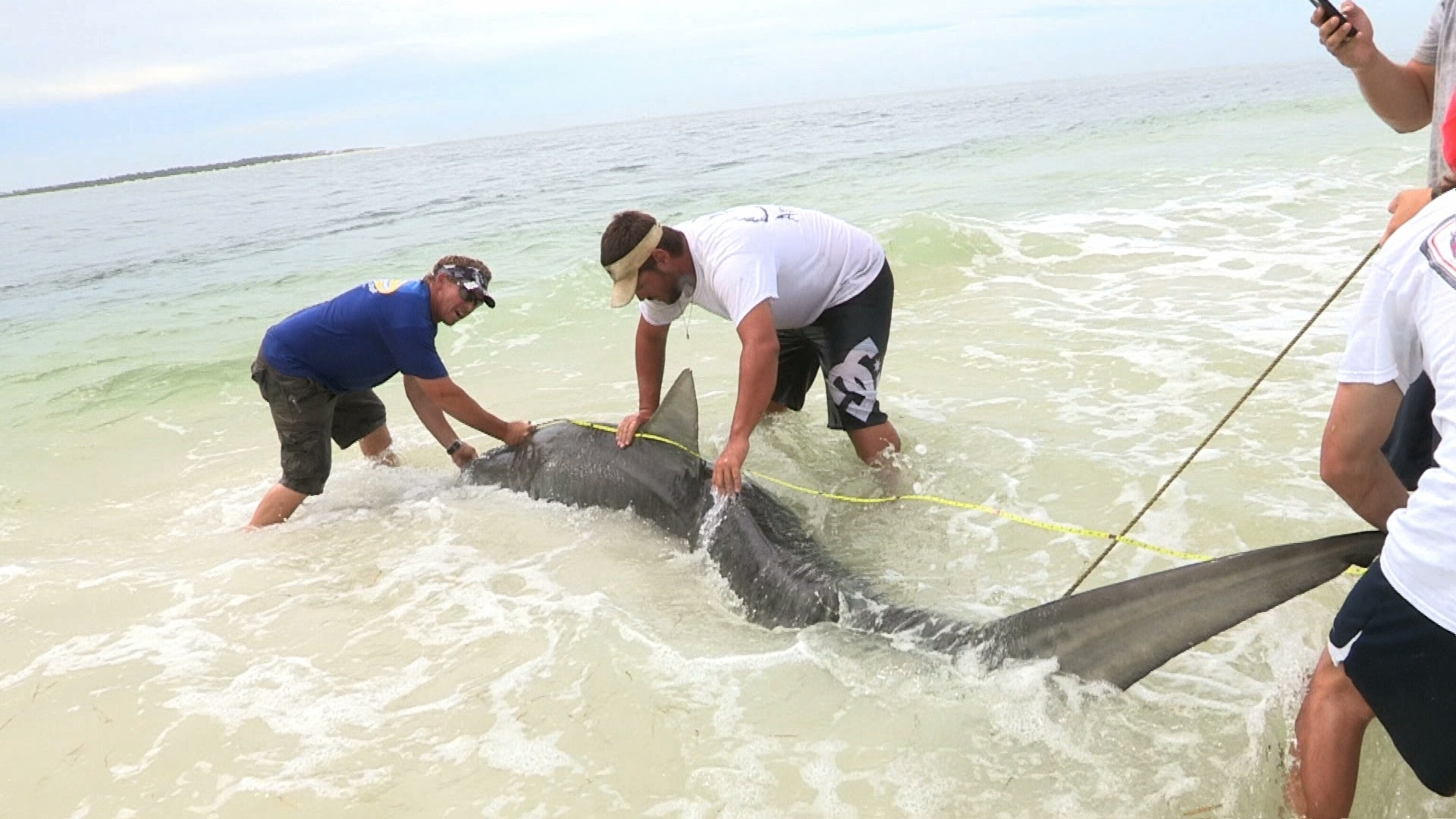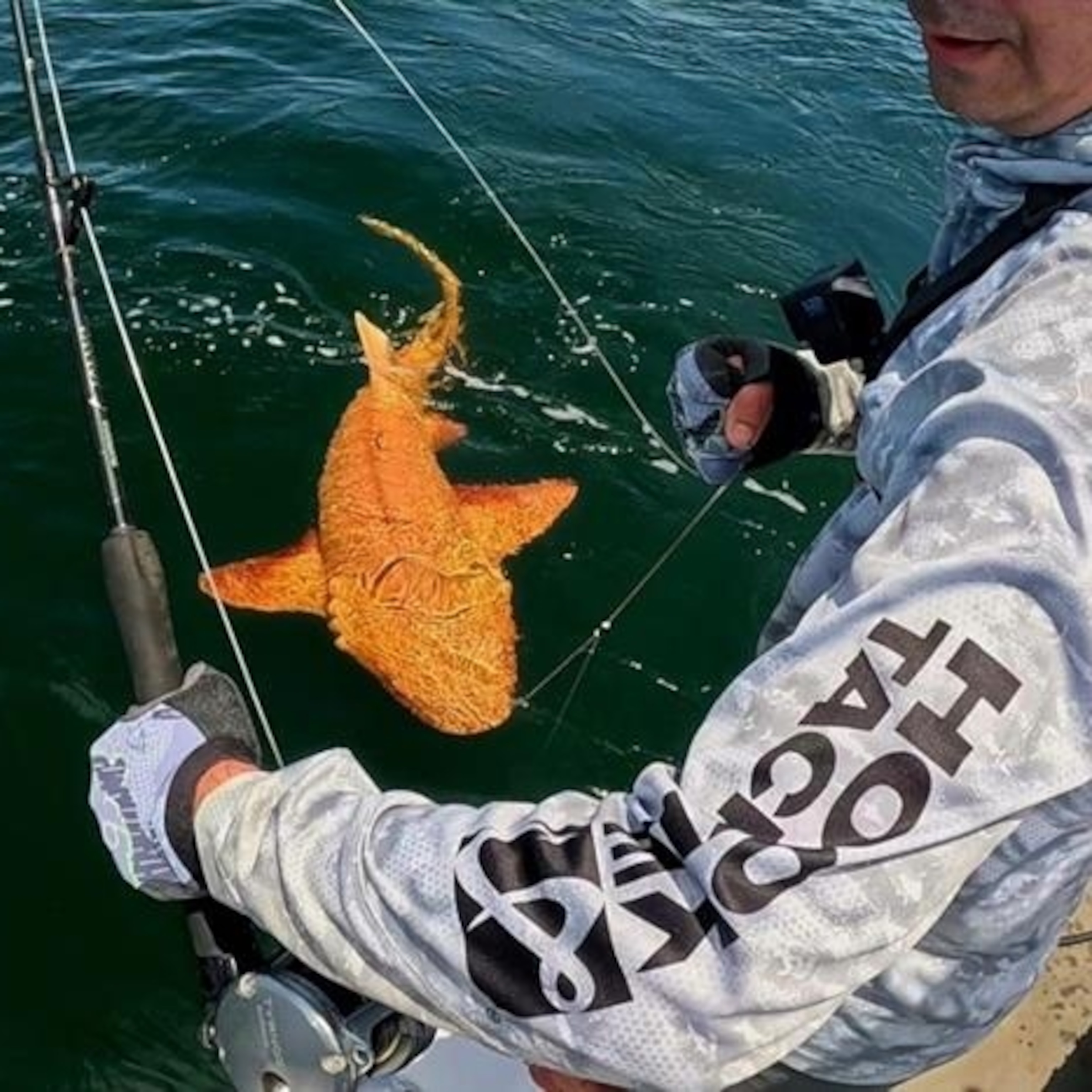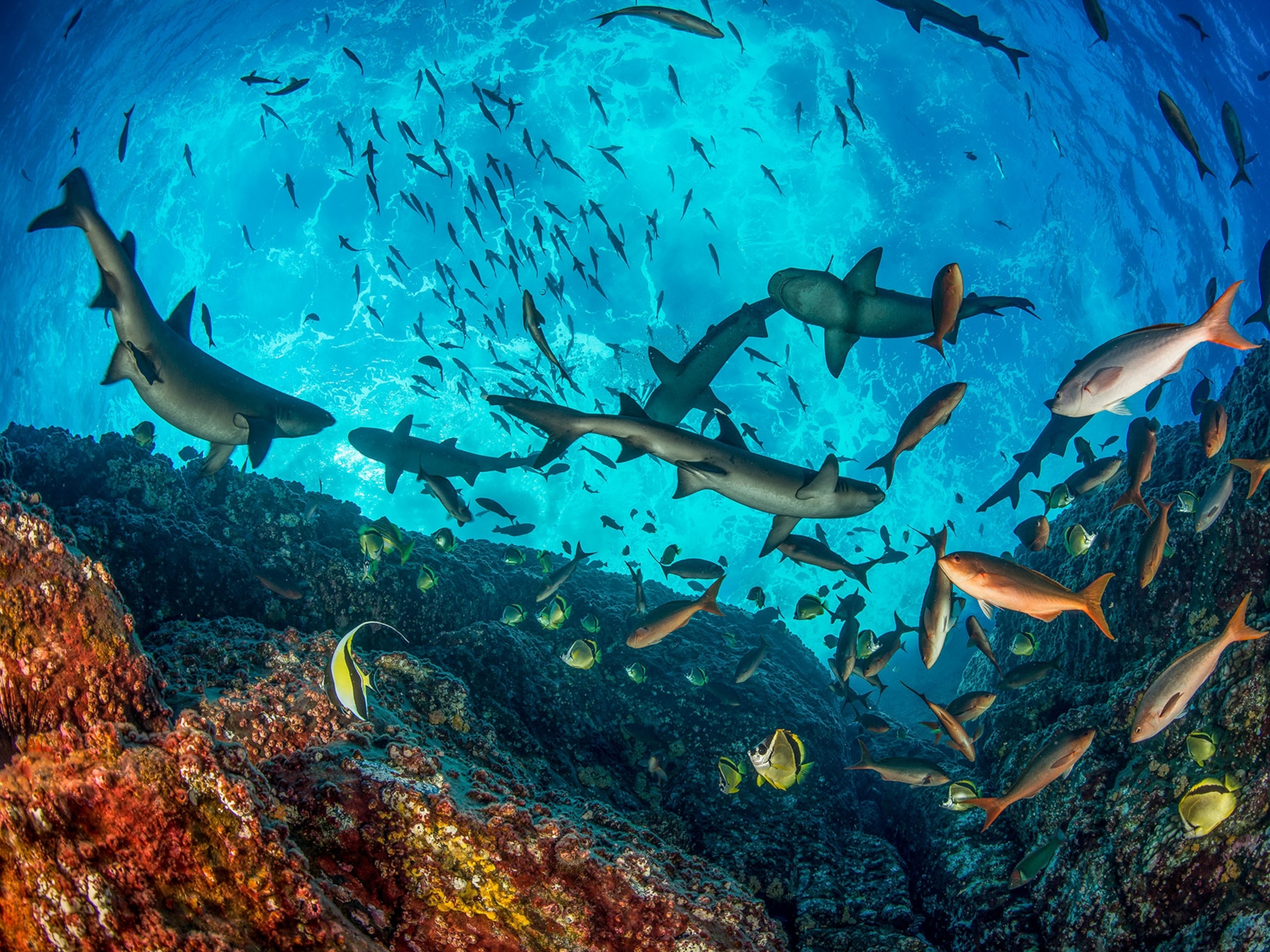
Shark-Fishing Forum Reveals Destructive Practices Despite Good Intentions
A new study identifies hundreds of instances of illegal shark fishing in Florida. The analysis suggests that many fishermen value sustainable fishing but are often skeptical of—or outright resistant to—many of the efforts to promote it.
In Florida shark fishing is a popular sport. A quick Google search turns up dozens of charter boat companies offering to take tourists out to catch the “big one.” “Great family fun,” one advertises. “Jump in the chair and battle one of these amazing fish,” says another.
In many cases, it’s catch and release. Sometimes, if it’s the right species—a blacktip, for example—it will be slaughtered and eaten.
Not everyone fishes for sharks from a boat, though. Land-based shark anglers fish from the beach or a pier instead.
Nearly a quarter of all sharks and their related species, including skates, rays, and chimaeras, are considered to be threatened with extinction. While commercial shark fishing is believed to be the biggest driver of shark declines, sport fishing can have a significant impact too. In fact, in 2013, 2014, and 2015 more large sharks were killed in the U.S. by recreational fishermen than by commercial fishermen, according to the annual State of U.S. Fisheries reports.
Marine conservation biologist David Shiffman, the man behind the popular Twitter account @whysharksmatter, realized that not much is known about the practices and beliefs of recreational shark anglers, especially those who fish from land. To learn more, he and colleagues analyzed more than a thousand public posts on South Florida Shark Club, a popular online forum for recreational land-based shark fishermen in the state. Their findings were published August 15 in the journal Fisheries Research.
They report hundreds of examples of illegal shark fishing, such as bringing ashore species that under Florida law cannot be landed, including hammerhead, tiger, and lemon sharks. They note many posts in which fishermen expressed mistrust of scientists and environmentalists working to protect sharks. They also point to many posts talking about the need to fish responsibly and the importance of shark conservation.
William Fundora, the administrator of the South Florida Shark Club, calls the study an “attack,” and says that “many times a newbie shark fishermen is not fully aware of what is the correct and fast way” to release a shark. In a Facebook message, he adds: “I can guarantee you we try and educate on our site and pass along the safest practices for shark catch and release.”
‘Curtailed into Non-Existence’
These seemingly contradictory attitudes likely come from the fact that these fishermen are often left out of the conservation conversation, says Shiffman’s co-author, Catherine Macdonald, an interdisciplinary shark researcher at the University of Miami.

The fishermen appear to be predominantly young, male, and have low incomes—or at least, they see themselves as low-income compared to other fishermen, especially when it comes to who gets to make the rules. In the forum there were many posts along the lines of, “we are...just a bunch of blue collar guys who don’t have political connections or connections with the [Florida Fish and Wildlife Conservation Commission] bigwigs.”
One sore point is that land-based fishermen are limited to fishing in state waters, where regulations say they can’t take hammerhead, tiger, sandbar, and lemon sharks, among other protected species. Those wealthy enough to own boats, however, can simply motor farther offshore into federal waters to fish those same species legally.
Fundora also echoes the point that land-based shark fishermen feel under attack. “We have been ardent promoters of catch and release, but it has been an uphill battle when we are attacked on all fronts by uninformed beach goers, scared tourists, and local government officials quick to try and abolish our sport in favor of rich beachside homeowners,” he says.
“Part of their problem is this feeling that they’re being slowly curtailed into non-existence,” Macdonald says of these fishermen.
This perceived lack of power plays out another way: Some fishermen simply refuse to follow the regulations. Researchers found more than two dozen posts about how to fish for protected species without getting caught and how to get away with it if caught. Even as some forum posters warned others to be careful what they share on Facebook, others were posting pictures of themselves, using their real names, with illegal catches. Some posts even indicated that the anglers knew that what they were posting about was illegal.
“It’s baffling to me how many cases of just blatantly illegal fishing activity are posted online in what is essentially a public forum,” Shiffman says. He counted 389 examples posted from 2010 through 2015.
Shiffman emphasized that the goal of the study was to analyze aggregate attitudes and behaviors, not identify individual instances of law-breaking. The researchers anonymized all comments before analysis to protect people’s privacy, even though all the posts were made on a public forum that could be accessed without creating an account. Administrators of the forum did not respond to requests for comment.
While many of these fishermen seem to realize that sharks are suffering from overfishing and appreciate the importance of good stewardship of the ocean, many don’t believe that their own fishing is having an effect on the conservation of species.
“I just think that we the recreational anglers should not be paying a price for the actions of others,” one post says. “The commercial fishermen and longliners are the ones that need to have their privileges reduced.”
Shiffman says most of the commenters on the forum appear to believe that they’re engaging in best practices. But in some cases “their practices are demonstrably harmful and...demonstrably illegal.”
Even catch and release, which has been the rule for hammerheads and tiger sharks since 2012, can cause lethal trauma to more sensitive species, he says.
‘Self-Righteous, Pompous, Pale-Skinned Bookworms’
“I won’t stop fishing because of this law,” one forum post says, “and I hope no one else stops either.”
Some fishermen believe they’re victims of government overreach. “Taking away land based shark fishing from us is against our rights,” another person wrote.
Others appear to believe fishing regulations are based on biased or inaccurate scientific data. “We should come together as much as possible to defend ourselves from the ambitious self-righteous, pompous, pale-skinned book worms that call themselves scientist[s] and twist the truth,” one person wrote.
Posts about environmentalists and their shark conservation efforts tended to reflected similar negative feelings.
But what this analysis does show is that there is overlap in what many anglers want and what scientists and environmentalists want, which is to protect sharks and the ocean. The information gleaned from these posts can better help everyone work together, the authors hope.
“It’s [about] breaking some of the bubbles between groups that care about these issues,” Macdonald says. This research “gave us a unique window into what they think and feel, and that helps open the door to understanding each other better.”




































